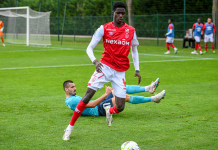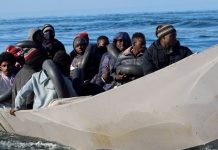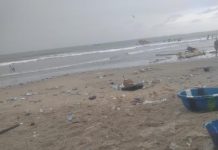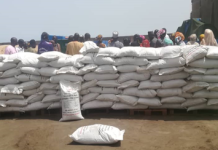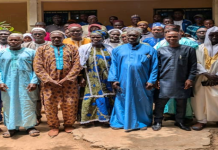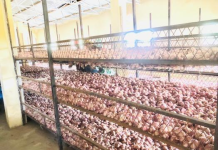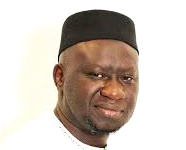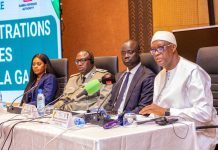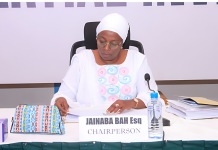By Madiba Singhateh
‘Try Oyster’ association together with the University of Cape Coast in Ghana; Development Action Association (DAA ); World Agroforestry (ICRAF) and the University of Rhode Island (URI ), recently held a day-long forum at a hotel in Bijilo, on mangrove co-management for women shell fishers and food security projects.
During the course of the activity, facilitators in collaboration with partners, shared their findings from a two-year study on mangrove restoration. Coordinators revealed that all the mangrove plantations they visited from Bullock to Tanbi and other national wetlands with an area of 6,000 hectares, are the most affected mangrove wetland which threatens marine biodiversity.
Speaking to Foroyaa, Sami Cameron from The World Agroforestry (ICRAF) said the Project is in the Gambia and Ghana and the situation is quite unique in the Gambia but different in Ghana in a sense that the mangroves resources is equally increasing from the assessment they’ve done compared to Ghana, which was declining. He said there are several factors that are contributing to this especially in Ghana where there is a lot of harvesting and also degradation of the resource group while in the Gambia unique resources are maintained by the communities with a lot of interest.
However, he said the communities’ needs social support to continue the work in terms of replanting and also taking care of the mangrove resources that are available.
Speaking further about the Gambia, he said the Tanbi is affected because of settlement as well as the urban pressure and the degradation of mangrove around the Tanbi.
According to him, a lot of cutting is happening in some of the sites, especially in Lamin where some of the mangroves are cut and used for firewood or charcoal, which he said affects the quality of fisheries because the mangroves that are allegedly cut down, served as a breeding ground for both fisheries and fish respectively. He observed that in Bullock, the resource is quite good but there are some pressures from external factors to this community because they know that the resource out there is quite intact.
“Outsiders are coming in that part of Bullock especially the Mandinary area to harvest the fisheries,” he alleged.
Dwelling on the essence of the forum, he said it is to involve stakeholders on Mangrove restoration across the country, raise awareness and share evidence collected while working with communities in the last two years of the USAID ,Try Oyster in collaboration with the Ministry of Environment.
He added that evidence gathered in the process, is being shared showing inputs of the communities and what they realised from the work they are doing. He further explained that increasing awareness among stakeholders was also important; adding that having the views of all the stakeholders involved in mangrove restoration and conservation was also necessary.
Foumata Jallow, Fish4ACP Project Coordinator Fisheries and Aquaculture Division of FAO, said the FISH4ACP is an initiative of the Organisation of African, Caribbean and Pacific States (OACPS) to contribute to food and nutrition security, economic prosperity and job creation by ensuring the economic, social and environmental sustainability of fisheries and aquaculture value chains in Africa, the Caribbean and the Pacific.
“The FISH4ACP programme was launched in The Gambia in March, 2022 with an inception workshop held in Banjul. Following this workshop, the project started the value chain analysis phase to collectdata across the country.
The Institute of Social Research and Development (ISRAD), was engaged as the FISH4ACP national partner to support the data collection effort,” she said. She added that the collected data enabled FAO’s Value Chain Analysis Team to carry out the functional analysis and assessments of the economic, social and environmental sustainability, as well as resilience analysis, of the oyster value chain.
“The value chain analysis (VCA) completed to date will be presented at the validation and vision development workshop. Through an inclusive and participatory process, the validation and vision development workshop allowed actors and other stakeholders in the value chain to contribute to and then validate the oyster VCA, and to share their views on a vision for oyster value chain upgrading,” Jallow expounded.
According to her, a ten year vision was developed with an upgrading strategy and implementation plan for value chain upgrading activities which acknowledges the need to take action to ensure that the mangroves oyster value chain is resilient and meets a growing demand for nutritious, safe and affordable food while maintaining sustainable ecosystems, economies and societies that leaves no one behind.

